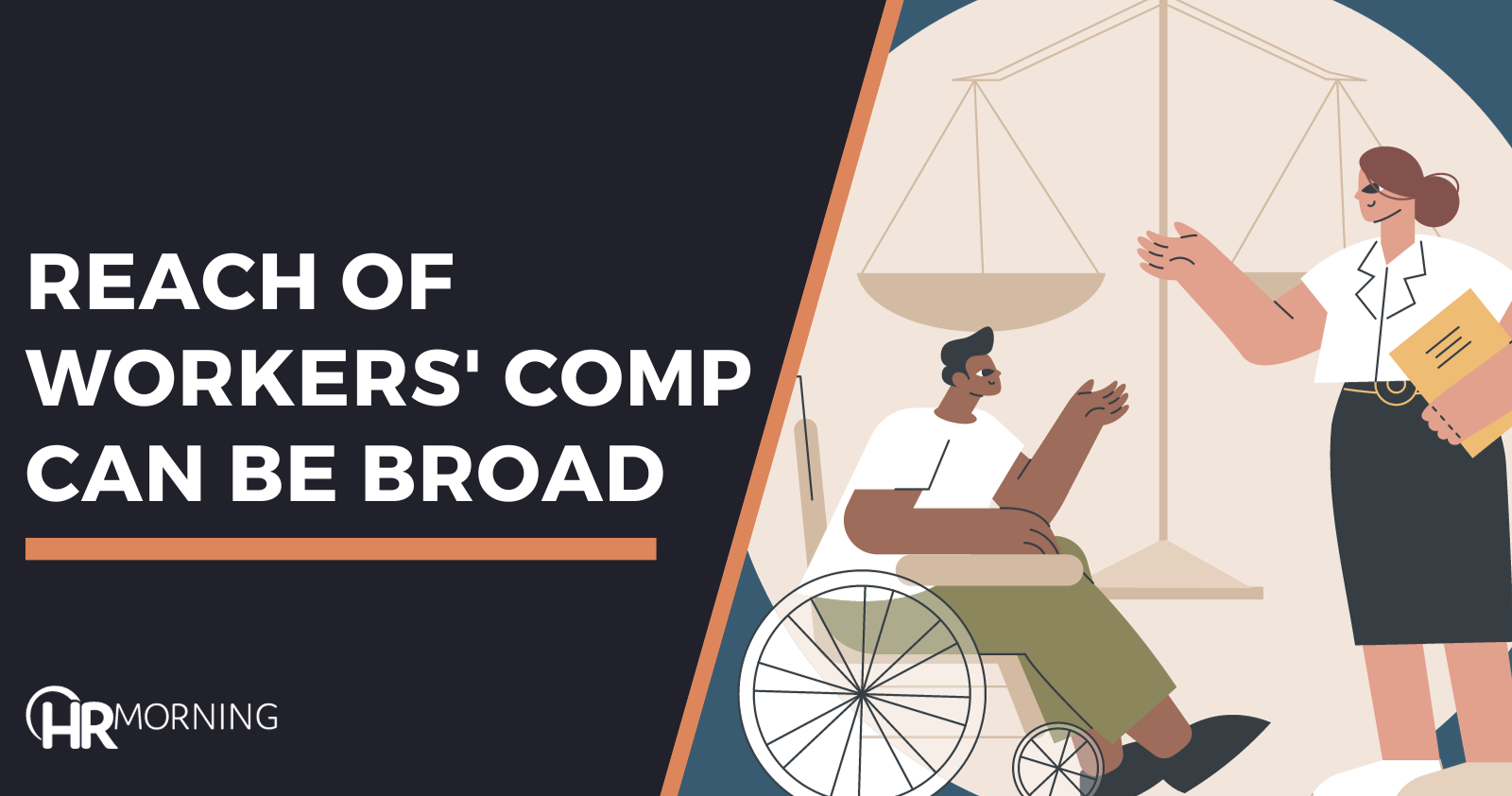Do you think you’re familiar with all the different ways that workers can be eligible for workers’ comp benefits? We’re betting you haven’t heard about this one.
A state appeals court in California ruled that a criminal defendant who was injured while completing a substance abuse treatment program might be entitled to workers’ comp benefits.
You read that right. Now let’s dig into the details of this unusual — and instructive — story.
The case involves Jose Velazquez, who pleaded guilty in a California state court to a felony count of forgery.
The trial court placed Velazquez on supervised probation with terms that required his participation in a residential treatment program.
Velazquez then began a six-month program run by The Salvation Army. The program included multiple components, including counseling, attendance at religious services and meditation.
It also included what the court called a “work therapy component,” which meant that participants were required to spend some time working in a Salvation Army warehouse.
What’s going on in that warehouse?
In connection with that part of the program, The Salvation Army told Velazquez that he would have to do some lifting, adding that he might “be exposed to potentially dangerous instrumentalities and equipment.” It also had him sign a waiver saying he was not entitled to workers’ comp coverage – which was invalid because California law bars such waivers. He further agreed via the waiver not to sue for “personal injury, disability or death.”
Velazquez got hurt while moving furniture in the warehouse. He sought workers’ comp benefits for his injuries, but both The Salvation Army and the county that supervised the terms of his probation denied his request.
At a workers’ comp hearing, the county said that when a court orders participation in a residential treatment program, it suggests residential treatment programs but the defendant makes the final decision about which one to attend. And The Salvation Army characterized Velazquez as a “beneficiary” of its program – and not an employee who was eligible for workers’ comp benefits.
For his part, Velazquez said the county told him it was sending him to The Salvation Army program instead of jail. He said he agreed to go because he wanted to avoid prison, adding that the county did not offer him any other program.
‘Here’s $28’
Velazquez worked five or six days a week in the warehouse. He did not get paid, although he was given $28 a week to buy things at The Salvation Army store.
Based on all this evidence, the workers’ comp judge decided Velazquez was not entitled to workers’ comp benefits from either the county or The Salvation Army.
When Velazquez petitioned for reconsideration, the state’s workers’ compensation appeals board upheld the finding against him. It said The Salvation Army was exempt from providing workers’ comp under state law because it is a nonprofit sponsor. The county was not liable for the benefits, it added, because it had no control over the conditions of his work.
A state court then agreed to review that decision.
Board did not do its job
The court declined to disturb the finding that The Salvation Army was not responsible for providing workers’ comp benefits to Velazquez because it was not his employer.
State law specifically excludes private, nonprofit organizations from the definition of “employer” when they act as a sponsor of someone who performs services for them as a condition of sentencing. That exemption applied to The Salvation Army here, the court said. It rejected Velazquez’s argument that the statutory exemption unconstitutionally deprived him of workers’ comp benefits.
The court reached a different result on the question of whether the county was Velazquez’s employer and was thus responsible for workers’ comp benefits.
On that question, it said there was not enough evidence in the record to enable meaningful judicial review. Essentially, it said the board did not do a good enough job of explaining why the county was not Velazquez’s employer.
As a result, the court sent the case back to the board for further consideration of the question of whether the county was his employer – even though the county really had nothing to do with his work activities at the warehouse.
Workers’ comp coverage is broad
If you think it’s a stretch to say the county was Velazquez’s employer, that’s because it is. But the fact that the question is still on the table serves as a strong reminder of the very broad reach that workers’ comp coverage may have.
Remember too that when it comes to private employment, workers’ comp is a creature of state law. Though the broad general rule – workplace injuries are to be compensated regardless of fault – is a common thread that runs throughout, states set their own specific parameters when it comes to the nooks and crannies of application and implementation.
Velazquez v. Workers’ Compensation Appeals Board, No. B321638 (Cal. Ct. App. 12/5/23).


